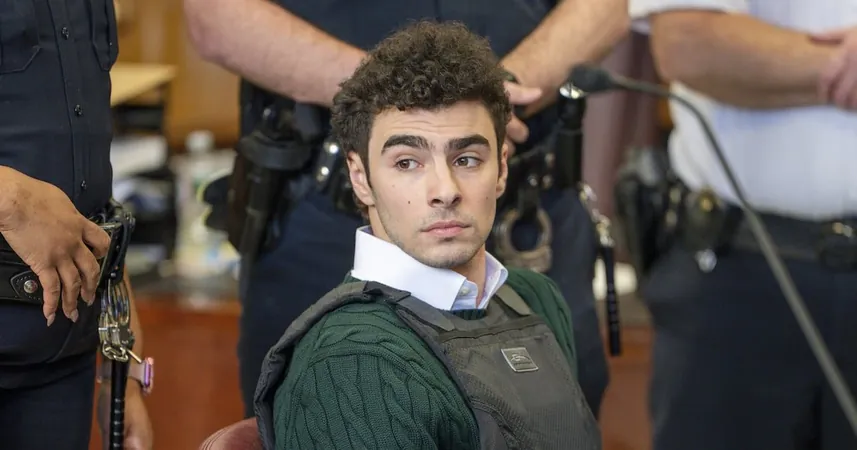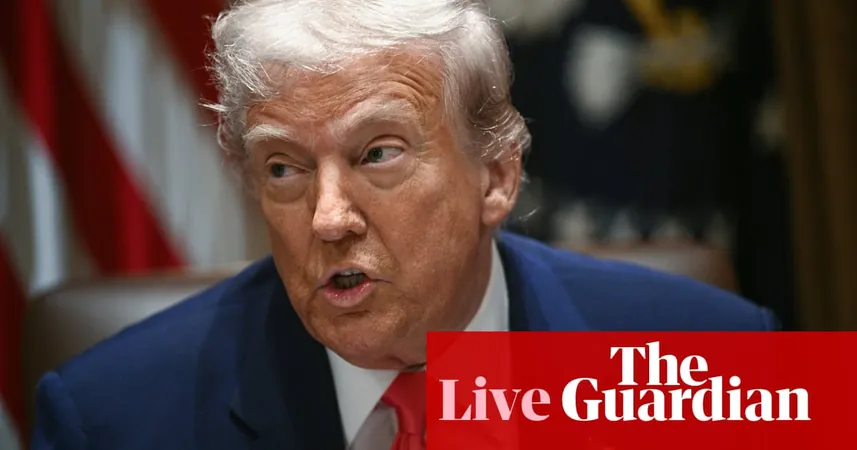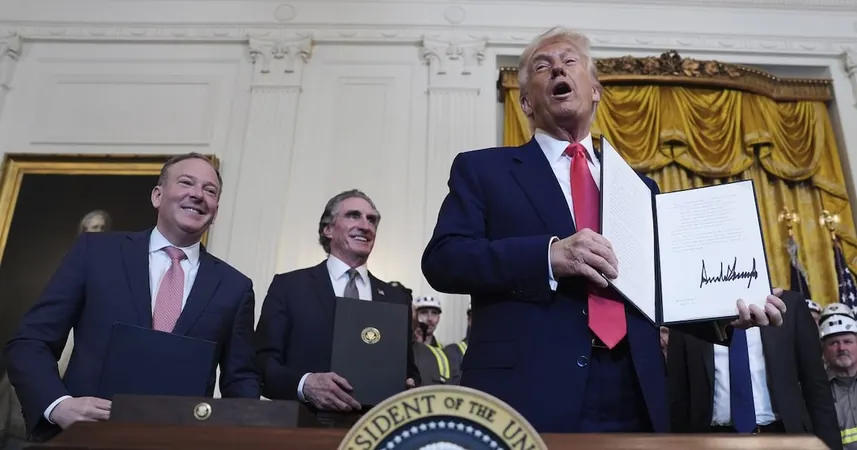
Outrage Over 'Barbaric' Death Penalty Decision in High-Profile Murder Case
2025-04-01
Author: Emma
Introduction
In a shocking turn of events, U.S. Attorney General Pamela Bondi has directed federal prosecutors to pursue the death penalty for Luigi Mangione, the alleged assailant behind the cold-blooded murder of Brian Thompson, the CEO of UnitedHealth Group's insurance division. This tragic incident occurred in New York last year, sending shockwaves across the nation.
Criticism of the Decision
Mangione's attorney, Karen Friedman Agnifilo, has vehemently criticized the decision, labeling it “barbaric.” She stated, “While claiming to protect against murder, the federal government moves to commit the pre-meditated, state-sponsored murder of Luigi.” This stark condemnation raises serious ethical questions about the federal government’s approach to justice in murder cases.
Details of the Case
At just 26 years old, Mangione has entered a plea of not guilty to state murder charges classified as acts of terrorism, alongside several weapons offenses. If convicted at the state level, he faces a sentence of life imprisonment without parole. However, since New York prohibits the death penalty for state charges, the stakes have escalated dramatically with the federal indictment, wherein prosecutors will aim to secure the ultimate punishment.
Circumstances of the Murder
The circumstances of the murder are particularly gruesome. Thompson was shot outside a hotel in Midtown Manhattan on December 4, during an investor conference. In the wake of the assassination, Bondi expressed her strong disapproval of the act, calling it a "premeditated, cold-blooded assassination" that left a significant impact on the community. She emphasized that pursuing the death penalty aligns with President Trump's agenda for combatting violent crime.
Manhunt and Arrest
The aftermath of Thompson's murder sparked a nationwide manhunt that ended five days later when police in Altoona, Pennsylvania, apprehended Mangione. Law enforcement discovered him in possession of a 9-millimeter pistol equipped with a silencer and clothing matching that of the shooter captured on security footage. Investigators also recovered a notebook containing disturbing revelations about Mangione's intent to "wack" a corporate leader.
Public Opinion Divided
While the majority of public officials have condemned the murder, a faction of Americans has controversially applauded Mangione as a whistleblower, suggesting that his actions highlighted the exorbitant costs of healthcare and the extensive power wielded by health insurers in denying treatments. This divided public opinion reflects a complex societal response to issues of healthcare reform, emphasizing the need for a deeper discussion on the frustrations surrounding U.S. health systems.
Legal Proceedings Ahead
As Mangione remains incarcerated in a federal facility in Brooklyn, the upcoming legal battles are poised to draw even more attention. The case could very well shape the discourse on the death penalty and its application in modern America. The ultimately unanimous decision from a jury during the trial's separate penalty phase will be critical in determining Mangione's fate.
Shift in Federal Execution Policy
In another significant development, Bondi recently lifted a moratorium on federal executions that had been enacted by her predecessor, Merrick Garland, under President Biden, signaling a potentially aggressive shift in the federal administration’s stance on capital punishment.
Conclusion
The eyes of the nation are fixed on this case, and with the plans for a potential death penalty sentencing, Mangione's trial could ignite further debates about justice, morality, and the failings of the American healthcare system. Stay tuned as this story unfolds in the coming months.









 Brasil (PT)
Brasil (PT)
 Canada (EN)
Canada (EN)
 Chile (ES)
Chile (ES)
 Česko (CS)
Česko (CS)
 대한민국 (KO)
대한민국 (KO)
 España (ES)
España (ES)
 France (FR)
France (FR)
 Hong Kong (EN)
Hong Kong (EN)
 Italia (IT)
Italia (IT)
 日本 (JA)
日本 (JA)
 Magyarország (HU)
Magyarország (HU)
 Norge (NO)
Norge (NO)
 Polska (PL)
Polska (PL)
 Schweiz (DE)
Schweiz (DE)
 Singapore (EN)
Singapore (EN)
 Sverige (SV)
Sverige (SV)
 Suomi (FI)
Suomi (FI)
 Türkiye (TR)
Türkiye (TR)
 الإمارات العربية المتحدة (AR)
الإمارات العربية المتحدة (AR)